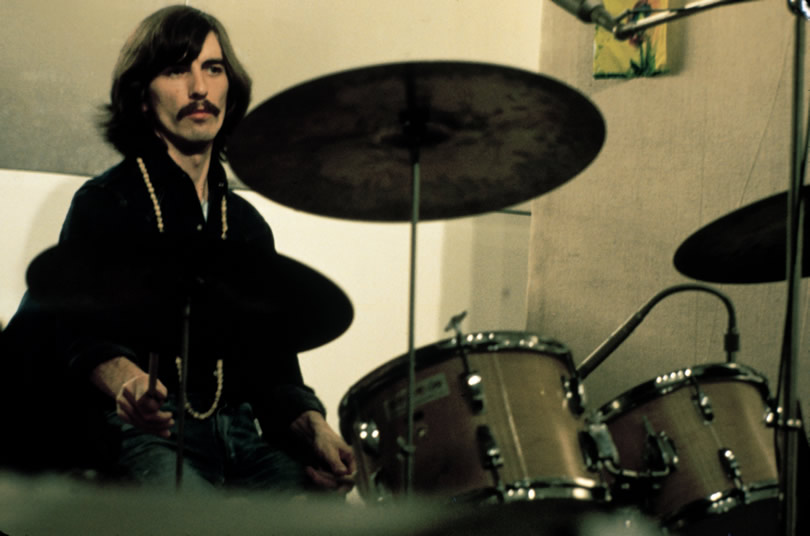Download All Things Must Pass Zip George Harrison

Nicknamed 'the Quiet Beatle' at the height of Beatlemania, George Harrison did indeed seem somewhat reserved compared to the other members of the Fab Four. He favored wry wit to Ringo Starr's clowning, and he never indulged in either John Lennon's penchant for controversy or Paul McCartney's crowd-pleasing antics. Obrazec protokola zasedaniya komissii vbi. He preferred sly provocations to larger-than-life bravado. Harrison's measured, considered persona was reflected in his music, particularly his clean, composed lead guitar parts but also in his earliest songs for the Beatles where he didn't seem to waste a line. With the introduction of psychedelics, spirituality, and Indian music in the mid-'60s, George's horizons expanded considerably and he started to come into his own as a musician, releasing a pair of experimental albums on Apple's Zapple offshoot before settling into a songwriting style that spliced Dylanesque introspection with his natural pop grace, while also developing a unique slide guitar technique that owed nothing to the blues.
Later Beatles albums hinted at this flowering of talent; The Beatles and Abbey Road contained some of his strongest work, with the latter including the standard 'Something,' a song Frank Sinatra called 'the greatest love song of the past 50 years.' Still, it wasn't until the 1970 release of All Things Must Pass, the post-Beatles triple album that was effectively his solo debut, that the general audience appreciated the depth of his talents. All Things Must Pass and its smash single 'My Sweet Lord' -- a single that topped the charts around the world -- also cemented Harrison's image as a mystic seeker, a reputation underscored by his 1971 superstar charity event The Concert for Bangladesh and 1973's Living in the Material World, back-to-back hits that established George as a superstar outside of the Beatles. His winning streak hit some rough spots in the mid-'70s, with his last two albums for Apple -- 1974's Dark Horse and 1975's Extra Texture (Read All About It) -- slowing his momentum, leading him to a respectable plateau where he stayed after establishing his Dark Horse label in 1976 with the release of Thirty Three & 1/3. Over the next six years, Harrison recorded fairly steadily and racked up some hits, but he didn't have a full-fledged comeback until 1987's Jeff Lynne-produced Cloud Nine. Thanks to the singles 'Got My Mind Set on You' and 'When We Was Fab,' the album became a Top Ten hit around the world and Harrison followed the record quickly with the supergroup the Traveling Wilburys, whose 1988 album Traveling Wilburys, Vol. 1 grew out of solo sessions for a Harrison B-side.
The Wilburys turned out to be George's last hurrah. After their final album in 1990, Harrison turned toward the Beatles Anthology reunion, and then maintained a low profile as he battled two types of cancer, succumbing to lung cancer in 2001. By that point, his legacy as one of the most influential musicians of the 20th century was secure. George Harrison was born in Liverpool on February 25, 1943, the last of the four children Harold and Louise Harrison had. He fell in love with music at an early age, sketching pictures of guitars in his school notebooks before he acquired his first guitar in 1956. Like many British teenagers, he was equally inspired by rock & roll and skiffle, the variation of folk popularized by Lonnie Donegan. He played in a skiffle group called the Rebels prior to meeting an older fellow schoolmate named Paul McCartney.

This set George on the path of joining a different skiffle outfit -- one McCartney had with John Lennon -- when he was just 15. Named the Quarrymen, the group would turn into the Beatles, with that group's lineup solidifying in 1962 when Ringo Starr replaced original drummer Pete Best. Harrison sang the lead vocal on 'Do You Want to Know a Secret' on the group's 1963 debut Please Please Me, and his first original song came later that year when 'Don't Bother Me' showed up on With the Beatles.
Over the next few years, he'd sing lead on songs either written by Lennon & McCartney or by one of his idols -- on 1964's Beatles for Sale, he sang Carl Perkins' 'Everybody's Trying to Be My Baby' -- but generally gained attention for his nimble guitar, which alternately rang and stung. He started to emerge as a writing force in 1965 with songs on Help! And Rubber Soul -- the latter contained two noteworthy compositions in the sneering 'Think for Yourself' and 'If I Needed Someone' -- but in 1966 he made a forceful impression with Revolver's barbed 'Taxman' and 'Love You To,' the latter indicating his newfound love for Indian music and culture and Eastern spirituality. Soon, the Beatles followed his lead on a pilgrimage to India in 1967, during which their manager Brian Epstein died, thereby setting the group off on a path toward its eventual dissolution.